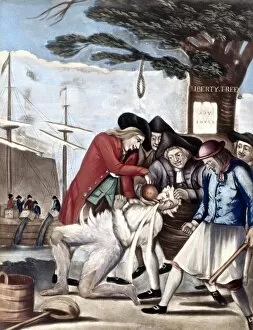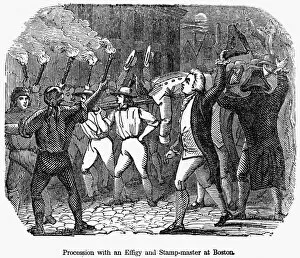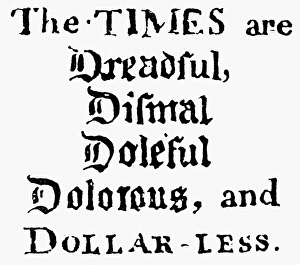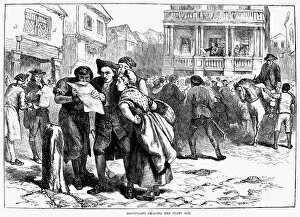Excise Tax Collection
"Revolutionary Roots: The Story in Colonial America" In the late 18th century, as tensions between the American colonies and Britain grew
All Professionally Made to Order for Quick Shipping
"Revolutionary Roots: The Story in Colonial America" In the late 18th century, as tensions between the American colonies and Britain grew, one particular issue became a catalyst for rebellion - excise tax. This controversial levy on goods such as tea and whiskey ignited a firestorm of resistance that ultimately led to the birth of a nation. The seeds of discontent were sown with events like the Boston Tea Party in 1773, where colonists defiantly destroyed British tea cargoes in Boston Harbor. This act of defiance was fueled by anger over not only high taxes but also the lack of representation in Parliament. One infamous figure caught up in this turmoil was John Malcom, an unpopular Commissioner of Customs at Boston. Depicted in satirical prints like "The Bostonians Paying the Excise Man, " he faced public scorn and even tar-and-feathering for his role in enforcing these taxes. But it wasn't just individuals who suffered under excise tax; entire industries felt its burden. The Whiskey Act of 1794 imposed heavy duties on distilled spirits, leading to widespread resentment among American distillers. Protests erupted across rural areas, culminating in what came to be known as the Whiskey Rebellion. These acts of resistance against oppressive taxation mirrored earlier protests against measures like the Stamp Act introduced back in 1765. Sons of Liberty took to the streets with effigies and demonstrations to voice their opposition and demand fair treatment from their colonial rulers. While these events may seem distant today, they laid down crucial foundations for American democracy. They highlighted principles such as no taxation without representation that would later shape both revolutionary fervor and constitutional ideals. As we reflect upon these historical moments captured through engravings and drawings like "An Exciseman" or "Repeal Funeral Miss Ame-Stamp, " let us remember how ordinary people fought for their rights against unjust taxes.

















